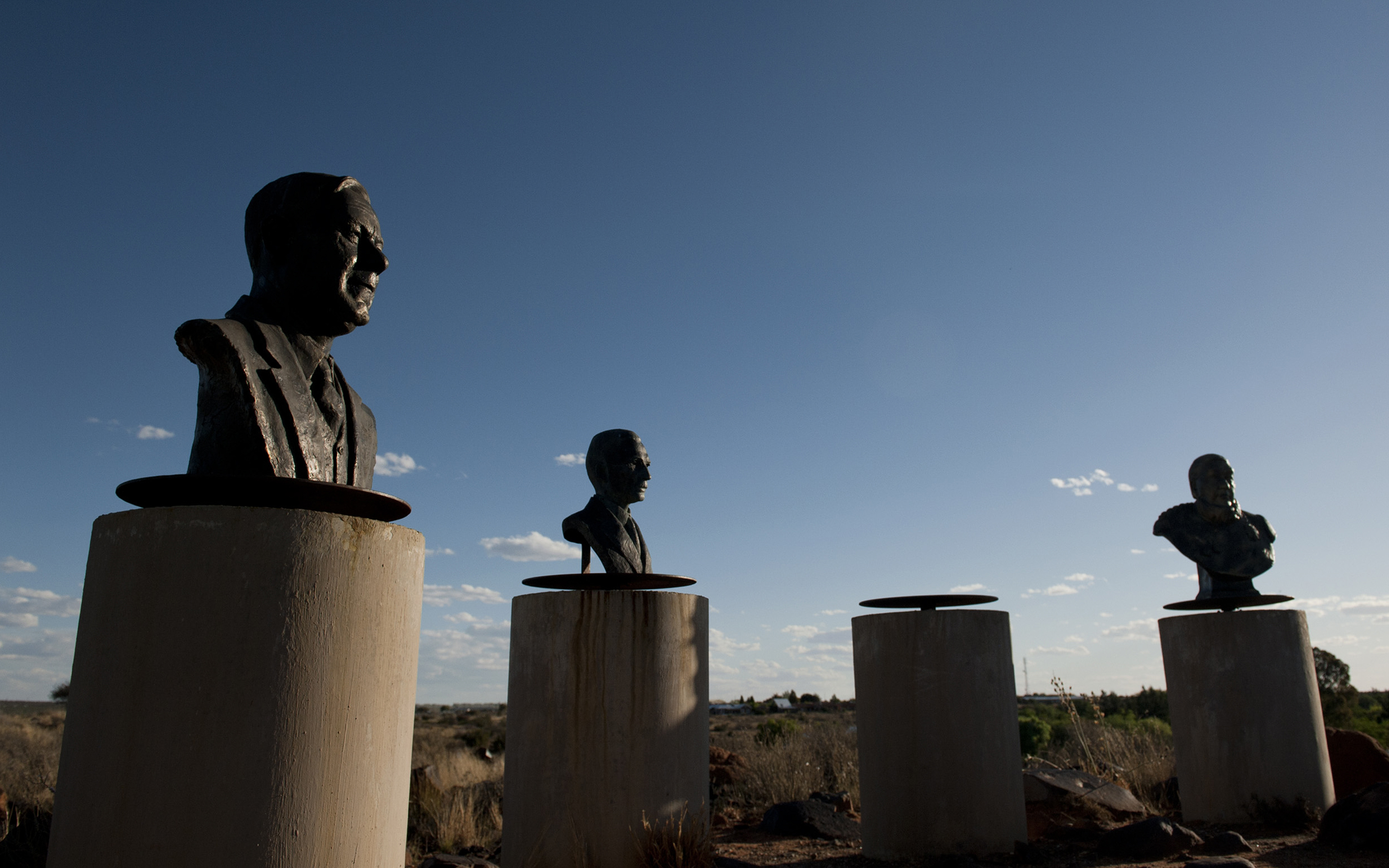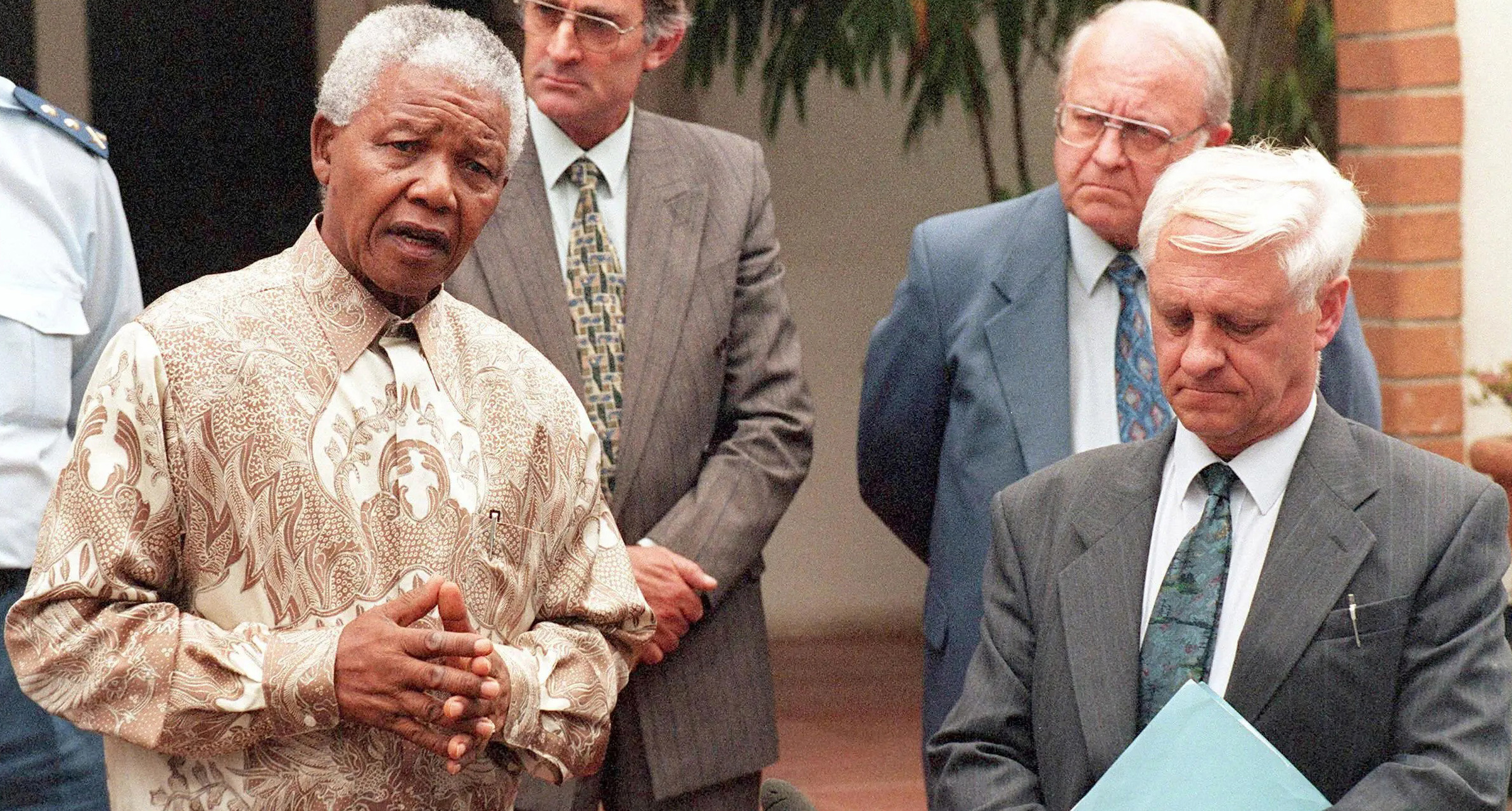Meeting Nelson Mandela is the rarest of privileges for anyone. Dinner with such a towering personality and a person of such monumental moral authority was beyond one’s wildest expectations.
Four of us joined Irene and Clive Menell at their home located on a wine estate between Wynberg and Constantia, a magnificent property nestled at the back of Table Mountain. The dinner was convivial, the conversation led largely by President Mandela. We observed his charming Victorian etiquette and preference for sweet wine, the same wine – Vin de Constance – Napoleon had ordered from St Helena during his exile there.
During the dinner Madiba was called to the phone and after 10 or so minutes returned, profusely apologetic about having to leave the table. He explained that the call was from Jacob Zuma, the man helping the African National Congress (ANC) bring social order to a violence-ridden KwaZulu-Natal.
When Zuma first returned from exile, Mandela apparently put off seeing him because of the human rights violations committed at the ANC’s Quatro camp in Angola on Zuma’s watch, but realpolitik required that Mandela had to depend on him despite the fury he felt at Quatro having brought the ANC into disrepute.
Towards the end of the dinner Mandela shared his concern about what in ANC nomenclature was called the “subordinate minorities” and “national question” in South Africa, a reference to the coloured (descendants of slave, indigenous and European settlers, my ancestors) and Indian (descendants of indentured labour from India brought to work on KwaZulu-Natal’s sugar plantations) communities.
Oppressed under apartheid, but not as pervasively as black people, there was deep disquiet about what majority rule would mean for them. Mandela said his mission was to build a nation that included everyone as full citizens. South Africa would only succeed if the talents, skills and assets of everyone were put to their fullest use. He was both a modernist and a nation-builder.
Turning to me, he then asked if the Institute for Democracy in South Africa (Idasa) might do for coloured people what it did for white Afrikaners. He referenced Idasa’s Conservative Dialogue. What was this solutions model that went by the Conservative Dialogue? A Google search will surface little to nothing. Some information that formed the background and events related to the Dialogue can be found in the Padraig O’Malley papers and the Nelson Mandela Foundation archive, but little more. It is another one of South Africa’s untold stories, and it goes as follows.
How could they engage extremists who would enjoy derailing the momentum towards a just society?
After decades of white rule, South Africa’s last white president, FW de Klerk, unlocked a political process that brought key leaders from the National Party and the ANC together to sign the so-called Groote Schuur and Pretoria Minutes, agreements upon which negotiations leading up to the first democratic elections of 1994 were to be built.
The negotiations forum, the Congress for a Democratic South Africa (Codesa), had been in session since December 1991. But there was – unsurprisingly – resistance from the Afrikaner community, driven largely by fear of the black majority.
Co-author of Black Power, Charles Hamilton, once told me how struck he was on his first visit to South Africa in 1979 when a senior Afrikaner jurist came up to him and said that their (whites’) greatest fear was that black people would do to them what they did to black people.
Alarmed, Idasa’s Pretoria Office director, Ivor Jenkins, brought staff members Paul Zondo, Kerry Harris and Alice Coetzee together to think about how to bring conservative Afrikaners into the negotiation process. The right-of-centre Conservative Party felt that De Klerk had abandoned them, that he had sold them out. The idea of having a Volkstaat (a nation state or exclusive homeland for white Afrikaners) had taken root and was gaining increasing ground.
What could they do to start a dialogue with people who wanted to maintain the status quo, and how could they engage extremists who would enjoy derailing the momentum towards a just society?
Known for his keen ability to lay the political table and put the right people around it, Jenkins engaged progressive Afrikaners associated with the respected Lawyers for Human Rights and critically, Abraham (Braam) Viljoen, to establish a project called Conservative Dialogue. Viljoen had been a professor of church history at the University of South Africa (Unisa), but had left to stand for the liberal Progressive Federal Party (a party I later chaired between 2010 and 2016 under a different name, the Democratic Alliance), but lost.
Significantly, Viljoen, who was now farming outside Pretoria, had an identical twin brother, Constand, a military general and head of the South African Defence Force (SADF). Jenkins hired Braam Viljoen to lead the Conservative Dialogue Project. Tom van Oorschot, visionary first secretary of the Netherlands Embassy, donated $50 000 towards the effort.
When the tea arrived, Mandela poured it himself, English style, tea first, milk later.
By 1993, South Africa was on a knife edge. The charismatic leader of the South African Communist Party, Chris Hani, had been assassinated by a white right-winger. The negotiating forum Codesa had collapsed.
Afrikaner groups convened a meeting in Potchefstroom and elected four generals, including Constand Viljoen, to lead them towards their promised land, the Volkstaat. A follow-up meeting was held at the legendary Skilpad Saal (tortoise hall). They refused to participate in negotiations, viewed the ANC as dreaded Stalinist hacks and De Klerk’s National Party as sell-outs.
The day after Hani’s assassination, Nelson Mandela went on national television and appealed to an outraged nation not to burn the country down. Having spent 27 monumentally long years in prison, Mandela had the moral authority to make the plea – and the people listened.
https://youtu.be/_1uG2NDwzZU?si=hv1p1KlEhkRDkFUW
After years of mutual estrangement between the brothers, Jenkins, deeply concerned about the fate of Afrikaners, persuaded Braam to reach out to Constand. The identical twins reconnected.
Symbolic gesture
The Idasa team worked hard at finding a channel of communication between the ANC and the Afrikaner right-wingers. They succeeded when a message came that Mandela was willing to talk to the generals.
Around September 1993, Braam Viljoen, Carl Niehaus (a former political prisoner) and Ivor Jenkins took Constand Viljoen – who, I am told, was crying Volkstaat or war – to Mandela’s Houghton home.
When the tea arrived, Mandela poured it himself, English style, tea first, milk later, and in that simple gesture of a gracious host was embedded a symbolism so deep that it stole the general’s heart.
Constand Viljoen left with the understanding that Mandela would ask his deputy, Thabo Mbeki, to lead negotiations with the generals about a Volkstaat. Mbeki put together a powerful team consisting of Joe Nhlanhla, Joe Modise and Jacob Zuma.
Jenkins arranged the first of seven secret meetings in venues around Pretoria. No one other than the participants knew about those first few meetings, not even apartheid’s intelligence czar Niel Barnard.
De Klerk’s National Party later became aware of what was going on and wanted a seat at the table. With Mbeki’s negotiating smarts and Braam Viljoen’s advisory efforts (he and Unisa’s Marinus Wiechers, a talented constitutional lawyer, advised his brother) they added a 34th principle to those adopted at Codesa.
 Monument Hill on Orania on 21 October 2014. The Afrikaner-only town is located along the Orange River in the arid Karoo region of the Northern Cape. (Photo: Gallo Images / Mail & Guardian / Madelene Cronjé)
Monument Hill on Orania on 21 October 2014. The Afrikaner-only town is located along the Orange River in the arid Karoo region of the Northern Cape. (Photo: Gallo Images / Mail & Guardian / Madelene Cronjé)
The 34th Principle gave Afrikaners the right to self-determination with two conditions to be met: (1) A Volkstaatraad (national council) had to be appointed to build out the Volkstaat idea; and (2) Afrikaners had to come into the forthcoming elections on their own ticket if they so wished, but with sufficient support to take the Volkstaat proposal forward.
Based on this, Constand Viljoen proceeded and registered the Freedom Front as a political party and brought mainstream Afrikaners into the 1994 election. There was a nervous moment when Constand Viljoen participated in an armed insurrection in the homeland of Bophuthatswana, but the slaughter of one of the Afrikaner Weerstand Beweging (Afrikaner Resistance Movement) leader Eugène Terre’blanche’s men, broadcast on national television, brought that debacle to an end.
The outcome of the process was the inclusion of Principle 34 in South Africa’s democratic Constitution. After the 1994 election the Volkstaatraad was established, but it fizzled out and little to nothing came of it.
The location for the Volkstaat, named Orania, was identified, and a small Afrikaner population moved there. Mandela visited and had tea with Betsie Verwoerd, the wife of apartheid’s architect, Hendrik Verwoerd.
What happened here? I am reminded of the US historian Arthur Schlesinger’s remark that leadership makes the world go round but love smooths the way. Madiba Magic – serving tea to adversaries and, as in the film Invictus, wearing the Springbok jersey to the 1995 World Cup – certainly smoothed the way. But it was Mandela the tough politician who admitted to the four generals when they met that the ANC was no match for the apartheid military.
He added, however, that they should remember that the white minority faced a black majority, not only in South Africa but in Africa as a whole, and try as they may, they could not kill us all, especially as the world was on our side. As Njabulo Ndebele remarked (in South Africa’s Nobel Laureates: Peace, Literature, Science, 2004), Mandela and the generals stared at each other in deep appreciation of our inter-dependence. We simply had to learn to live together, and are still at it, 30 years later. DM
Dr Wilmot James was the executive director of Idasa between 1995 and 1998. He is now a professor in the School of Public Health and senior adviser to the Pandemic Centre at Brown University, Providence, Rhode Island.




 A general view of Monument hill on October 21, 2014 in Orania, South Africa. Orania is an Afrikaner-only South African town located along the Orange River in the arid Karoo region of Northern Cape Province. (Photo by Gallo Images / Mail & Guardian / Madelene Cronjé)
A general view of Monument hill on October 21, 2014 in Orania, South Africa. Orania is an Afrikaner-only South African town located along the Orange River in the arid Karoo region of Northern Cape Province. (Photo by Gallo Images / Mail & Guardian / Madelene Cronjé) 